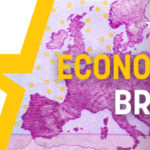Energy News Beat
When presenting her new team of Commissioners earlier this week, President Ursula von der Leyen highlighted that the whole executive should be “committed” to restoring Europe‘s competitiveness.
Even more tellingly, in von der Leyen’s new team economic responsibilities are spread across numerous comissioners and as many as four executive vice-presidents – reflecting the fact that “around 20 member states wanted a strong economic portfolio,” she said on Tuesday.
In her mission letters to each and every commissioner, von der Leyen asked them to “draw on” the contents of the competitiveness report presented by Mario Draghi earlier this month (alongside the earlier paper by Enrico Letta), which highlighted that Europe must keep its eyes on one prize: increasing productivity.
What can the new picks do to live up to that task?
The choice of Frenchman Stéphane Séjourné as executive vice-president for prosperity and industrial strategy hints at a more dirigiste industrial policy.
But this would require a lot of money, which is why EU officials expect a “big debate on funding” over the next few years – a forecast that chimes with Emmanuel Macron recently piling pressure on Germany to double the EU budget from 2028, to ignite an “investment shock” for the European economy.
However, this week also offered a sobering perspective on how far subsidies can get you.
In Berlin, Economy Minister Robert Habeck (Greens) has already tried out some French-style industrial policy – encouraged by the loosened post-pandemic framework for state aid.
As it turns out, not even the promise of €10 billion in German state aid, the largest subsidy ever for an individual factory, could help secure the €30 billion of total investment needed for chipmaker Intel’s new factory in Magdeburg. The company announced it has “paused” its plans this week for approximately two years due to financial troubles.
Similar problems plague steelmaker ThyssenKrupp and battery producer Northvolt, which were also meant to play a crucial part in the country’s industrial strategy (and are still due to receive €2 billion and €900 million in state aid respectively).
Long-lived criticisms that governments are bad in picking winners were not so wrong after all, it would seem.
What is it, then, that Europe can do to get back on track?
Timo Jaatinen, Permanent Secretary of the Finnish Ministry of Economic Affairs, advocates a different approach. He believes Europe should secure funding for research and development (R&D), rather than subsidies, if it wants to shore up its economic standing in the world.
“In Finland, we see that research and innovation… are really, truly the heart of industrial policy and competitiveness policies,” Jaatinen said at an industry conference held by umbrella group BDI in Berlin on Wednesday (18 September), arguing that is a vital driver “if [Europe] really wants to solve the competitive gap it is are facing.”
According to Word Bank data from 2022, Finland is among the few EU countries (alongside Germany, Belgium and Austria) that can compete with the US on R&D spending as share of GDP (see Chart of the Week).
But Jaatinen stressed Europe should play a role, too.
“We want the European Union […] to be the champion, and therefore the EU’s competitiveness funding should be seen as the Champions League,” he pointed out, adding that “EU funding should focus on research and innovation based on excellence and open competition”.
Speaking to Euractiv in the margins of the conference, Jaatinen also voiced criticism towards Habeck’s approach.
“Instead of direct state aid and supporting such industries that compete in the marketplace, we should emphasise more research and innovation in new sectors,” he said.
“Why I mentioned this is, of course, because we are now discussing about the coming European budget,” he said, citing discussions on how to balance existing spending with new priorities such as defence.
Early negotiations on the next Multiannual Financial Framework (MFF), which will start in 2028, have already kicked off across capitals – with several German ministries holding a meeting on the issue on Thursday.
At the moment, European research spending mostly comes through the Horizon Europe programme, which at €95 billion amounts to around 8% of the overall EU budget for 2021-27. But it is currently dwarfed by the two largest funds – the Common Agricultural Policy and Cohesion Policy – and at risk of being squeezed even further.
“In this very complex political puzzle, we have to ensure that there is enough funding for research and innovation,” Jaatinen stressed, before heading off to talks with the German government.
With Germany – as the largest net financial contributor – playing a decisive role in budget talks, Berlin will heavily influence the bloc’s upcoming industrial policy. It will soon have to take a stance on whether the French or the Finnish model should prevail.
Chart of the Week
Economic News Roundup
The lucky new commissioners and their economy-focused portfolios. President Ursula von der Leyen said on Tuesday (17 September) that balancing the overarching aims of competitiveness and security with the number of member states wanting their candidate to have an economy-related portfolio heavily influenced how she structured her College of Commissioners. “Around 20 member states wanted a strong economic portfolio. We do not have 20 strong economic portfolios,” von der Leyen told reporters. Here is Euractiv’s guide to the lucky commissioners with economy-focused portfolios over the next mandate.
EU, China trade chiefs agree to look at ‘price undertakings’ in key EV tariff saga twist. China and the EU have agreed to re-examine the possibility of setting a minimum price for Chinese automakers selling electric vehicles (EV) to avoid definitive tariffs of up to 35.3%, signalling a negotiated solution to the year-long trade dispute between the two blocs could be within reach. In a statement released after a meeting between Chinese Commerce Minister Wang Wentao and EU Trade Commissioner Valdis Dombrovskis on Thursday (19 September), the Commission said that Brussels and Beijing would “take a renewed look” at so-called price undertakings – agreements where a trade counterparty pledges to set seeling price floors. Read more.
Ahead of the meeting, Chinese Commerce Minister Wang Wentao had told Chinese and European automakers at a meeting in Brussels on Wednesday (18 September) that China-EU trade ties are now at a “crossroads”, with “one path leading to openness and collaboration [and] the other to protectionism and isolation”.
EU headed for ‘big debate on funding’ on clean industrial deal, Commission director says. The EU’s new clean industrial strategy must strike a balance between protecting key industries, not unduly shielding others, and creating a strong business case for clean products, key EU officials said on Wednesday (18 September) – with Kurt Vandenberghe, head of the Commission’s climate department, admitting ‘a big debate on funding’ will ensue. Kerstin Jorna, head of the internal market department, DG GROW, confirmed that working on public procurement rules will be one of the key tasks of her department, including to create so-called “lead markets” for climate-friendly materials such as green steel. Read more.
Far-left, far-right MEPs slam Draghi report, while centre offers support. Mario Draghi’s report on European competitiveness was sharply criticised by far-left and far-right MEPs – albeit for different reasons – in a European Parliamentary debate in Strasbourg on Tuesday (17 September), but received strong backing from Commission President Ursula von der Leyen’s centrist alliance. Read more.
One day earlier, the American Chamber of Commerce in the EU (AmCham EU) warned against possible negative implications of the report as it had recommended “reinforced European preference principles” in the defence sector. Read more.
Intel halts plans for flagship factories in Germany, Poland amid financial woes. US chipmaker Intel has paused its planned new factories in Magdeburg, Germany and near Wrocław, Poland by “approximately two years”, in a blow to the EU’s efforts to build up domestic chipmaking capacity. The two projects, partly funded through state aid, are key parts of the EU’s plan to boost its domestic semiconductor industry and improve its resilience and independence. The EU Chips Act, in force since September 2023, aims to double Europe’s share of global semiconductor manufacturing to 20% by 2030. Read more.
EU Commission rebuffs car industry calls to delay CO2 targets. The European Commission pushed back on Monday (16 September) against calls by automakers to postpone upcoming 2025 CO2 reduction targets for cars, arguing the sector has had enough time to prepare. Read more.
Take the Survey at https://survey.energynewsbeat.com/
Crude Oil, LNG, Jet Fuel price quote
ENB Top News
ENB
Energy Dashboard
ENB Podcast
ENB Substack
The post France or Finland – whose industrial policy should prevail in Europe? appeared first on Energy News Beat.








